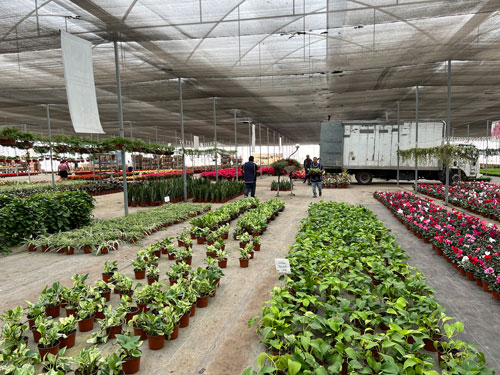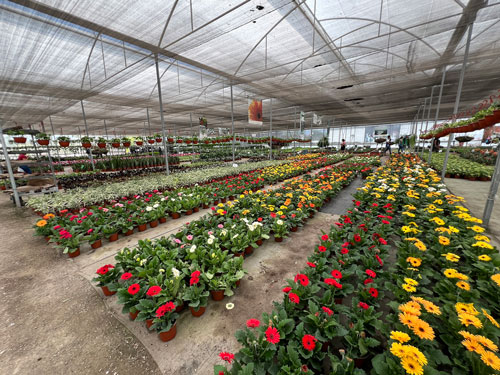1/1/2025
Grown & Raised in Mexico for Mexico
Jennifer Zurko

The State of Morelos in Mexico has become a popular place for breeding companies to produce their young plants off-shore, with four different farms growing stock plants and harvesting cuttings at multiple locations around the area. But the first company to plant roots, so to speak, was Floraplant.
Founded in 1985 by Peter and Lulu Doster as an investment opportunity, Floraplant was created to form a partnership with Fisher, which was looking for a place to produce geranium cuttings. Peter found the land for the original location in Tetecalita on an old sheep ranch and started building greenhouses.
In the early 1990s, they parted ways, with Fisher opening their own farm in Cuautla and Peter taking over total control of the farm in Tetecalita. When Syngenta bought Fisher, Peter ended up taking over that location, too, and since then, Floraplant has had two farms totaling over 80 hectares.
 The Tetecalita location is where all of the stock is grown for cuttings shipped to the U.S. and Canada, but what you’re seeing is their Cuautla location where they produce finished plants under the company name Floramundo. Something I learned while in Mexico is that they do not import OR export any finished plants—all of the product sold at retail are grown and finished in Mexico. In 2003, Floraplant started to supply finished plants to The Home Depot. Fidel Ochoa, Director of Floraplant and Floramundo, said at the time, there were only two Home Depot stores in all of Mexico; now there are 140.
The Tetecalita location is where all of the stock is grown for cuttings shipped to the U.S. and Canada, but what you’re seeing is their Cuautla location where they produce finished plants under the company name Floramundo. Something I learned while in Mexico is that they do not import OR export any finished plants—all of the product sold at retail are grown and finished in Mexico. In 2003, Floraplant started to supply finished plants to The Home Depot. Fidel Ochoa, Director of Floraplant and Floramundo, said at the time, there were only two Home Depot stores in all of Mexico; now there are 140.
The Cuautla location has a beautiful display garden with statuary, water features and a large replica of an Aztec pyramid where they hold parties and meetings underneath, and offers a great view of the property from above. Across from the garden is their pick-and-sell wholesale greenhouse where their retail and landscaper customers come to buy plants for the Mexican consumer market. They offer a wide range of product, from tropicals to annuals and potted plants. When I was there in early November, they had tons of poinsettias, which is referred to as “Noche Buena” by the locals.
 Carlos Martinez, one of the production managers at Floraplant, said that the retail market in Mexico is good, but the problem is that prices should be higher. Many retailers don’t have a problem selling plants of lesser quality for a lower price point because the Mexican consumer doesn’t expect or demand specific quality standards. Carlos said that growing the highest quality is a major focus at Floraplant, and they try and price their plants accordingly. GT
Carlos Martinez, one of the production managers at Floraplant, said that the retail market in Mexico is good, but the problem is that prices should be higher. Many retailers don’t have a problem selling plants of lesser quality for a lower price point because the Mexican consumer doesn’t expect or demand specific quality standards. Carlos said that growing the highest quality is a major focus at Floraplant, and they try and price their plants accordingly. GT